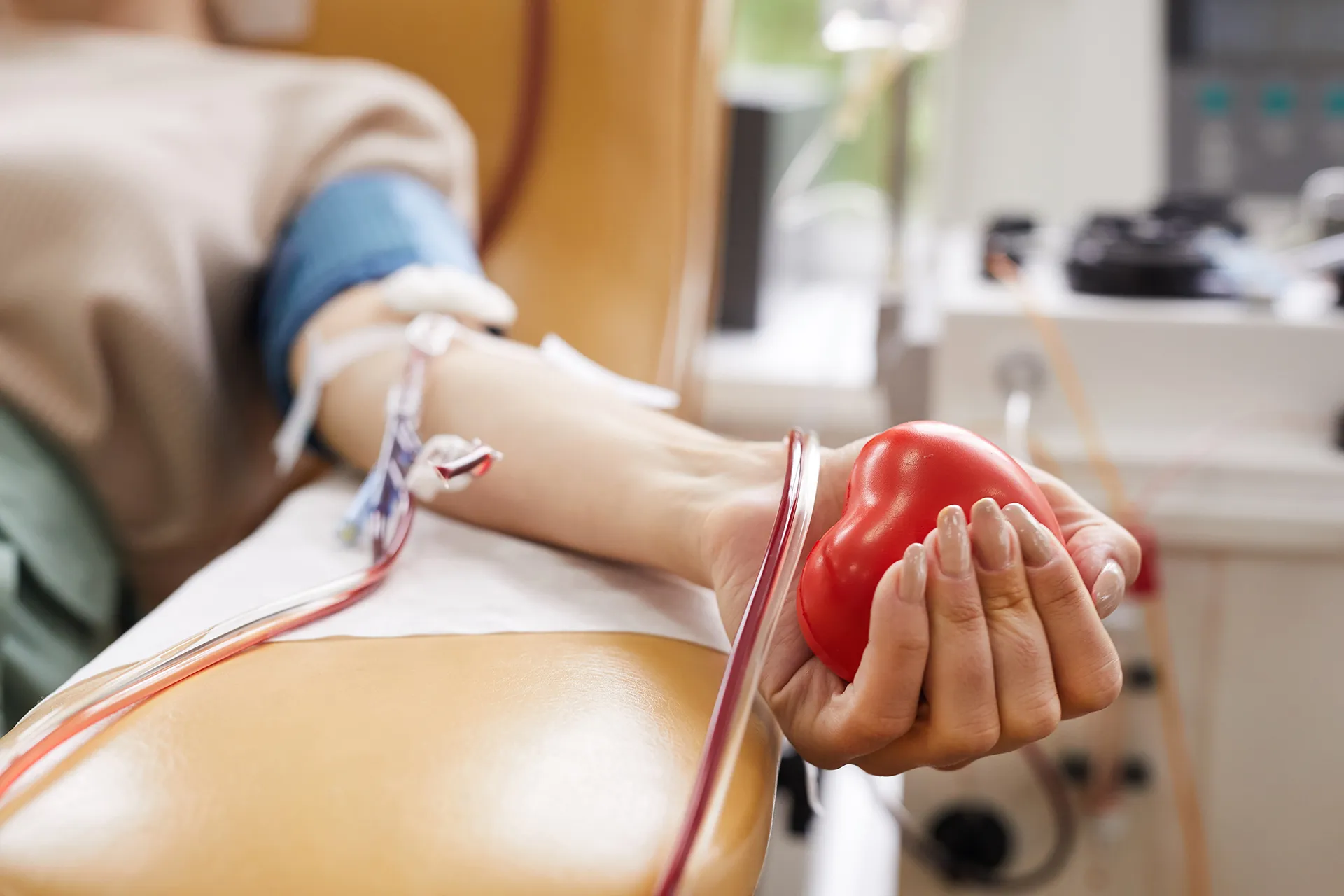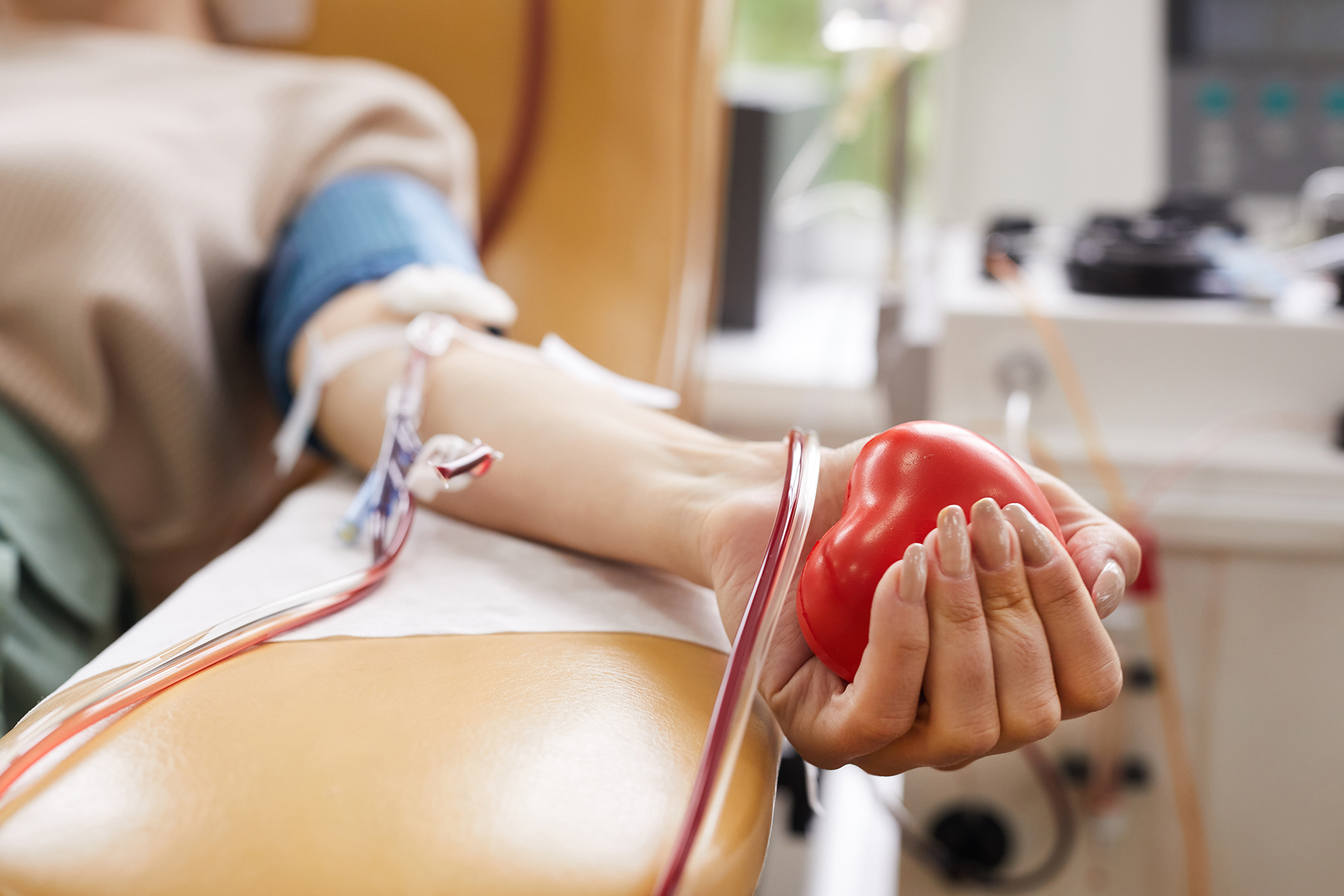General Health | 6 min read
This World Blood Donor Day, Give Blood and Save Lives. Here's Why and How
Medically reviewed by
Table of Content
Key Takeaways
- WHO celebrates World Blood Donor day on 14th June to encourage blood donation
- Tested positive for Covid? Wait for at least 14 days after recovery to donate
- Donating blood often can reduce your risk of heart problems and boosts health
Every year, 14th June is celebrated as World Blood Donor Day worldwide to thank voluntary blood donors. The International Blood Donation Day is also a way to create awareness and emphasize how donating blood can prove life-saving. After all, blood is a crucial component in the body, essential for a healthy life. You may require blood urgently during treatment, surgeries, terminal illness and accidents. However, considering that blood cannot be manufactured, blood donation is crucial to saving lives. With the intent to propagate this message, the World Health Organization celebrates International Blood Donation Day on 14th June of every year.
With a population of nearly 1 billion, India only manages to collect 7 million units of blood via voluntary participation. This is especially alarming, as the shelf-life of collected blood ranges between 35 and 42 days. However, did you know that blood donation has health benefits for the donor. Recent research indicates that people who donate blood often are at low risk of developing cardiovascular conditions.
Considering how one pint of blood can save three lives in addition to the abovementioned health benefit, you should consider donating blood if you don’t already. And there is no better day than World Blood Donor Day, 2021 to start! Furthermore, on Blood Donor Day, take steps to increase awareness about the importance of blood donation. To further encourage you this World Blood Day, here is an overview on blood donation.
How does blood donation work?
In general, donating blood can take an hour, including registration, health check-up and post-donation observation. The actual blood donation takes only 8 to 10 minutes unless you decide to donate plasma or platelets, which can take two to three hours.
Step 1: Registration
Fill a registration form with personal details, such as your name, phone number, and address. Most importantly, this form records your consent to give blood.
Step 2: Medical check-up
Undergo a basic medical check of your temperature, blood pressure and pulse. Then, a small sample of your blood is collected to check for hemoglobin levels, infections, viruses such as Hep B, Hep C and HIV. Lastly, you will be asked questions about your health history, recent travels, sexual activity, and medication.
Step 3: Donation
Here, you are asked to lie down on a bed. A phlebotomist will insert a sterile needle in your arm. You may feel a slight pinch. A pint of blood is collected, and the process barely takes 10 mins. Once done, you are asked to raise the arm, and apply some pressure at the insertion spot to help the blood clot. An adhesive strip is put on the spot before you can go.
Step 4: Refreshments
Once done, you are given something to eat and drink to help you replenish your bodily fluids and gain energy. You are asked to sit for 10 mins to ensure that you are not weak or feeling dizzy.

What to expect before, during, and after donating blood?
To donate blood, you need to ensure that you are eligible. These eligibility criteria are in place to ensure the safety of the receiver and the donor as well. The eligibility criteria to donate blood is given below.
- You should be above 18 years of age and weigh more than 45 kgs.
- You should have a normal pulse, temperature and a hemoglobin level higher than 12.5 grams.
- You cannot donate blood if you got a tattoo or piercing in the last year.
- If you have cancer, diseases such as epilepsy, asthma, heart diseases or any blood disorder, you cannot donate blood.
- You can donate blood if you have diabetes managed by medication. However, individuals that take insulin to manage diabetes should not donate blood.
- Women who have recently given birth and individuals that have received immunization or vaccination shots recently cannot give blood.
Apart from these, if you have taken intravenous drugs even once, you cannot donate blood.
A week before you donate blood, ensure that you have a nutritious meal replete with iron-rich foods like sweet potatoes, spinach, meat, and seafood. On the day you donate blood, ensure that you drink fluids and carry all necessary documents about your prescription drugs and treatments if any.
After donating blood, ensure that you eat a balanced meal, and drink a lot of fluids. Also, do not indulge in exercise or any heavy physical activity for at least a day. If you feel too weak, immediately seek medical attention. You have to wait a minimum of 56 days before donating blood again. However, you can donate platelets seven days after you have donated blood.
What are the benefits of blood donation?
There are multiple physical and emotional benefits of donating blood. Donating blood lowers iron levels in the body, reducing the risk of heart conditions. Additionally, donating blood often reduces the level of triglycerides and bad cholesterol, ensuring better overall health. Furthermore, donating blood makes you feel better, as it gives you a sense of belonging to a community or a team that is actively saving lives. This, in turn, reduces stress and rids you of negative feelings.
What are the Covid-19 concerns to address before blood donation?
It is safe to donate blood despite the ongoing pandemic. Research shows that the virus is not transmitted via blood transfusion. However, if you have tested positive for Covid, you should wait for at least 14 days post-recovery to donate blood. The same waiting period applies if you have been fully vaccinated. If you tested positive for Covid antibodies, then you can donate blood immediately.
Additional Read: Critical Care Measures to Take For Covid-19If you have recovered from COVID recently, then you should donate plasma instead of blood. This plasma is injected into people with severe COVID as part of convalescent plasma therapy, boosting their immune system to fight the virus. Convalescent plasma is a product made from blood rich in antibodies that can help fight the virus. Patients that recover from Covid have this in abundance and should voluntarily come forward and help the Covid response.
Armed with this information, become a World Blood Donor today! You can easily find hospitals, labs, blood banks, and even NGOs that organize blood donation activities. Actively donating blood and raising awareness, especially on 14th June, World Blood Donor Day, will help you contribute to decreasing the gap between availability and demand and save lives in the process.
However, if you need urgent medical help after donating blood or for any other health issue, simply use Bajaj Finserv Health. Find the ideal doctors near you in seconds by using the smart search filters and book appointments instantly. Choose between in-person and video consultations to get the right advice at the right time! Also see a range of health plans that offer various value-added services and discounts at partner hospitals and labs, to help you cater to healthcare better.
References
- https://www.researchgate.net/publication/319805680_100_Voluntary_Blood_Donation_in_India_by_2020_A_Difficult_Goal_to_Fathom
- https://heart.bmj.com/content/78/2/188.short
Disclaimer
Please note that this article is solely meant for informational purposes and Bajaj Finserv Health Limited (“BFHL”) does not shoulder any responsibility of the views/advice/information expressed/given by the writer/reviewer/originator. This article should not be considered as a substitute for any medical advice, diagnosis or treatment. Always consult with your trusted physician/qualified healthcare professional to evaluate your medical condition. The above article has been reviewed by a qualified doctor and BFHL is not responsible for any damages for any information or services provided by any third party.
